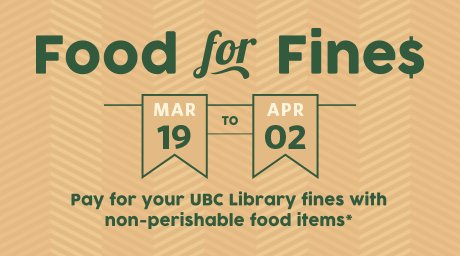Stay up to date on news, events and special features.
Join the UBC Seed Lending Library for a Wesbrook Earth Day celebration!
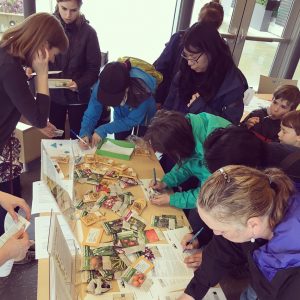
UBC Seed Lending Library in participating in the Wesbrook Earth Day celebration!
“Borrow” a few seeds to get your garden started, enjoy a storytime performance and family friendly planting activities. Borrow picture books and gardening books from the UBC Library pop-up collection. Everyone is welcome to attend this free event.
Do you have seeds to share? The Seed Lending Library is accepting your non-hybrid, open-pollinated seeds to support our collection.
Sunday, April 22
12-2pm
Wesbrook Community Centre Lounge
For more information on the seed library visit UBC Seed Lending Library or contact Wendy Traas
Food for Fines – March 19 to April 2
For every non-perishable food item you donate to the UBC Library, $2 will be reduced from your fines – to a maximum of $30! Donations are accepted at the Education Library and all other UBC Library branches.
All donations go to the UBC AMS Food Bank on Campus and the Greater Vancouver Food Bank which provide food relief for students in need, including non-perishable foods, supplies and information about additional resources on- and off-campus.
The highest demand items are:
– hearty soups, stews, chili
– canned fish, meat, beans
– pasta & rice
– peanut butter
Core Competencies Taught through Picture Books
Children’s Books and the Core Competencies: Finding Connections
Have you ever considered using children’s books to support your teaching of the curriculum’s core competencies? For the next week at the Education Library, we’re displaying picture books that can help you do just that.
Here are some of the books we’re highlighting:
Communication
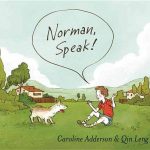 Norman, Speak! By Caroline Adderson
Norman, Speak! By Caroline Adderson
This humorous story about a young boy who adopts a dog demonstrates the steps we can take to understand others–including animals–when we are having difficulty communicating. You can use this book to explore communication in general, or as an introduction to additional language acquisition.
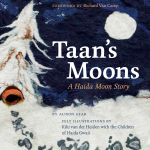 Taan’s Moons: A Haida Moon Story by Alison Gear
Taan’s Moons: A Haida Moon Story by Alison Gear
People aren’t the only ones with stories to tell. This book about the Haida moon cycle is one way to explore the story that nature communicates through the changing seasons.
Creative Thinking
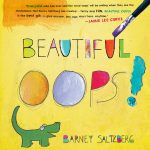 Beautiful Oops by Barney Saltzberg
Beautiful Oops by Barney Saltzberg
Show your young students that even accidents can be art with Beautiful Oops. Paint drops, smudges, smears, and even crumpled up paper, all have the potential to be something great when we develop the ability to think about them creatively.
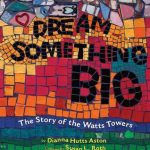 Dream Something Big by Dianna Hutts Aston
Dream Something Big by Dianna Hutts Aston
Introduce found-object art–or artistic and creative thinking in general–with this true story about the creation of the Watts Towers sculptures by Simon Rodia.
Critical Thinking
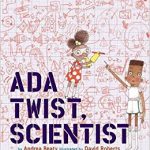 Ada Twist, Scientist by Andrea Beaty
Ada Twist, Scientist by Andrea Beaty
Promoting critical thinking in the classroom means fostering your students’ curiosity and encouraging them to ask as many questions as possible. Ada Twist is a perfect example of someone who asks questions about everything she sees and you can use her story to explore curiosity and the pursuit of answers. You may even have a few budding scientists like Ada in your class who will love her story!
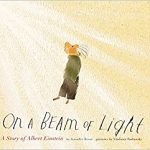 On a Beam of Light by Jennifer Berne
On a Beam of Light by Jennifer Berne
Introduce your students to one of the greatest critical thinkers of all time with this book that explores Albert Einstein’s desire to solve some of the world’s biggest mysteries from a young age. You can use this book as a pathway to explore some of Einstein’s scientific contributions, or to encourage your students to solve the mysteries they uncover, too.
Positive Personal and Cultural Identity
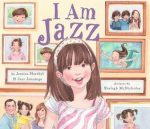 I Am Jazz by Jessica Herthel and Jazz Jennings
I Am Jazz by Jessica Herthel and Jazz Jennings
Even our youngest students should be encouraged to explore their identities and to understand others’ sense of self. This book can help you foster an understanding of transgender identities in class and show students that young kids can understand themselves even when others, including adults, cannot.
Personal Awareness and Responsibility
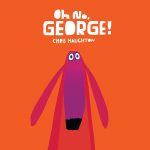 Oh No, George! by Chris Haughton
Oh No, George! by Chris Haughton
Introduce decision-making and personal responsibility with this book about George, a dog who, despite having good intentions, doesn’t always make good decisions.
Social Responsibility
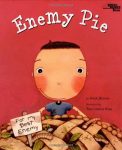 Enemy Pie by Derek Munson
Enemy Pie by Derek Munson
Sometimes the people we think are our enemies can become our friends when we reach out. Explore the value in reaching out to others, even the people we don’t get along with, in this story about a young boy whose father encourages him to bake a peace-offering pie for his biggest enemy.
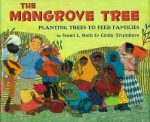 The Mangrove Tree: Planting Trees to Feed Families by Cindy Trumbore
The Mangrove Tree: Planting Trees to Feed Families by Cindy Trumbore
You can explore social responsibility on a global scale with this true story about Dr. Gordon Sato, whose work sought solutions to global issues including poverty, environmental pollution, and global warming. This book follows the story of Sato planting mangrove trees in the dry, saltwater lands of Eritrea.
Stop by the Education Library to take a look at the other books we have on display, and let us know which children’s books you use to support the core competencies!
New Book Highlights – March
Lately we have been getting a lot of books about how to incorporate digital technologies into your classroom! Here are a select few:
 Coding Literacy: How Computer Programming is Changing Writing by Annette Vee – “The message from educators, the tech community, and even politicians is clear: everyone should learn to code. To emphasize the universality and importance of computer programming, promoters of coding for everyone often invoke the concept of “literacy,” drawing parallels between reading and writing code and reading and writing text. In this book, Annette Vee examines the coding-as-literacy analogy and argues that it can be an apt rhetorical frame.” [Google Books]
Coding Literacy: How Computer Programming is Changing Writing by Annette Vee – “The message from educators, the tech community, and even politicians is clear: everyone should learn to code. To emphasize the universality and importance of computer programming, promoters of coding for everyone often invoke the concept of “literacy,” drawing parallels between reading and writing code and reading and writing text. In this book, Annette Vee examines the coding-as-literacy analogy and argues that it can be an apt rhetorical frame.” [Google Books]
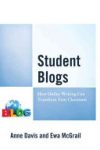 Student Blogs: How Online Writing Can Transform Your Classroom by Anne Davis and Ewa McGrail – “This book investigates blogs as digital spaces where students can practice writing and converse with an authentic audience. It focuses on idea development and gives students voice.” [UBC Catalogue]
Student Blogs: How Online Writing Can Transform Your Classroom by Anne Davis and Ewa McGrail – “This book investigates blogs as digital spaces where students can practice writing and converse with an authentic audience. It focuses on idea development and gives students voice.” [UBC Catalogue]
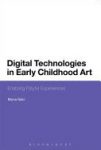 Digital Technologies in Early Childhood Art: Enabling Playful Experiences by Mona Sakr – “As digital technologies become increasingly prevalent in the lives of young children, there is a pressing need to understand how digital technologies shape important experiences in early childhood, including early childhood art. Mona Sakr shows the need to consider how particular dimensions of the art-making process are changed by the use of digital technologies and what can be done by parents, practitioners and designers to enable children to adopt playful and creative practices in their interactions with digital technologies. Incorporating different theoretical perspectives, including social semiotics and posthumanism, and drawing on various research studies, this book highlights how children engage with different facets of art-making with digital technologies including: remix and mash-up; distributed ownership; imagined audiences and changed sensory and social interactions.” [Google Books]
Digital Technologies in Early Childhood Art: Enabling Playful Experiences by Mona Sakr – “As digital technologies become increasingly prevalent in the lives of young children, there is a pressing need to understand how digital technologies shape important experiences in early childhood, including early childhood art. Mona Sakr shows the need to consider how particular dimensions of the art-making process are changed by the use of digital technologies and what can be done by parents, practitioners and designers to enable children to adopt playful and creative practices in their interactions with digital technologies. Incorporating different theoretical perspectives, including social semiotics and posthumanism, and drawing on various research studies, this book highlights how children engage with different facets of art-making with digital technologies including: remix and mash-up; distributed ownership; imagined audiences and changed sensory and social interactions.” [Google Books]
 Game-Based Learning: Theory, Strategies and Performance Outcomes – edited by Youngkyun Baek – “At a time when digital games are becoming much more commonly used in classrooms, this book provides a much-needed guide to different forms and applications of digital game-based learning. The book brings together researchers and practitioners from around the world who share their theories, strategies, findings of case studies, and practical approaches to support better performance and learning outcomes when learning with digital games.” [Google Books]
Game-Based Learning: Theory, Strategies and Performance Outcomes – edited by Youngkyun Baek – “At a time when digital games are becoming much more commonly used in classrooms, this book provides a much-needed guide to different forms and applications of digital game-based learning. The book brings together researchers and practitioners from around the world who share their theories, strategies, findings of case studies, and practical approaches to support better performance and learning outcomes when learning with digital games.” [Google Books]
As always, you can see all our new books here.
New Book Highlights – February
Here are a few new books at the Education Library that can make your lessons more engaging and interesting.
 Burn Math Class by Jason Wilkes – Forget everything you’ve been taught about math. In Burn Math Class, Jason Wilkes takes the traditional approach to how we learn math–with its unwelcoming textbooks, unexplained rules, and authoritarian assertions-and sets it on fire. Focusing on how mathematics is created rather than on mathematical facts, Wilkes teaches the subject in a way that requires no memorization and no prior knowledge beyond addition and multiplication. From these simple foundations, Burn Math Class shows how mathematics can be (re)invented from scratch without preexisting textbooks and courses. We can discover math on our own through experimentation and failure, without appealing to any outside authority. When math is created free from arcane notations and pretentious jargon that hide the simplicity of mathematical concepts, it can be understood organically–and it becomes fun!
Burn Math Class by Jason Wilkes – Forget everything you’ve been taught about math. In Burn Math Class, Jason Wilkes takes the traditional approach to how we learn math–with its unwelcoming textbooks, unexplained rules, and authoritarian assertions-and sets it on fire. Focusing on how mathematics is created rather than on mathematical facts, Wilkes teaches the subject in a way that requires no memorization and no prior knowledge beyond addition and multiplication. From these simple foundations, Burn Math Class shows how mathematics can be (re)invented from scratch without preexisting textbooks and courses. We can discover math on our own through experimentation and failure, without appealing to any outside authority. When math is created free from arcane notations and pretentious jargon that hide the simplicity of mathematical concepts, it can be understood organically–and it becomes fun!
Following this unconventional approach, Burn Math Class leads the reader from the basics of elementary arithmetic to various “advanced” topics, such as time-dilation in special relativity, Taylor series, and calculus in infinite-dimensional spaces. Along the way, Wilkes argues that orthodox mathematics education has been teaching the subject backward: calculus belongs before many of its so-called prerequisites, and those prerequisites cannot be fully understood without calculus.
Like the smartest, craziest teacher you’ve ever had, Wilkes guides you on an adventure in mathematical creation that will radically change the way you think about math. Revealing the beauty and simplicity of this timeless subject, Burn Math Class turns everything that seems difficult about mathematics upside down and sideways until you understand just how easy math can be. [Google Books]
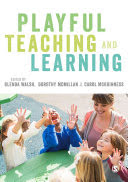 Playful Teaching and Learning by Glenda Walsh, Dorothy McMillan and Carol McGuinness – Every early years practitioner should be able to captivate and maintain the interest of young children in their setting, through the provision of a playful learning experience.
Playful Teaching and Learning by Glenda Walsh, Dorothy McMillan and Carol McGuinness – Every early years practitioner should be able to captivate and maintain the interest of young children in their setting, through the provision of a playful learning experience.
Covering age ranges 3-8 years, this textbook explores the importance of infusing playfulness throughout the entire early years day, and includes chapters that:
establish the core principles underpinning playful teaching and learning
help students and practitioners understand how playfulness can be applied to all aspects of the early years curriculum including mathematics, literacy, outdoor environments, science & technology, and ICT
explore core issues in early years provision including observing, planning & assessment, and how they relate to playful learning
emphasize the role and qualities of the playful professional.
This is a fantastic resource for any student or practitioner looking to enrich the lives of young children through meaningful playful learning experiences. [Google Books]
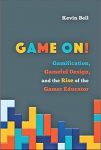 Game on!: Gamification, Gameful Design, and the Rise of the Gamer Educator by Kevin Bell – The changing student body in American higher education demands a new approach to teaching, one that moves toward inclusive, hyperpersonalized learning environments that have much in common with games and social media. Kevin Bell’s Game On! presents dynamic case studies of gamer educators and game-derived techniques to help instructors creatively formulate their own teaching strategies.
Game on!: Gamification, Gameful Design, and the Rise of the Gamer Educator by Kevin Bell – The changing student body in American higher education demands a new approach to teaching, one that moves toward inclusive, hyperpersonalized learning environments that have much in common with games and social media. Kevin Bell’s Game On! presents dynamic case studies of gamer educators and game-derived techniques to help instructors creatively formulate their own teaching strategies.
Breaking gamefully designed classes into their component parts, Bell analyzes what these classes are actually doing and explains why they work. He offers faculty a rubric to assess their own courses for their propensity to engage students, particularly those from low socioeconomic and high-risk populations. Bell explores how game design, pedagogy, and intrinsic motivators can level the playing field to produce rigorous learning environments that are as addictive to all participants as the latest apps and social media systems. He also discusses best practices, lays out the broader context of computer-mediated teaching and learning, and considers the challenges and opportunities that gamification presents.
Instructors would do well to consider the key tenets of successful games if they are to engage and graduate the coming generations of learners. Bell’s careful analysis of the theories behind gamification, cognitive science, and instructional design will help them to do just that. [Google Books]
